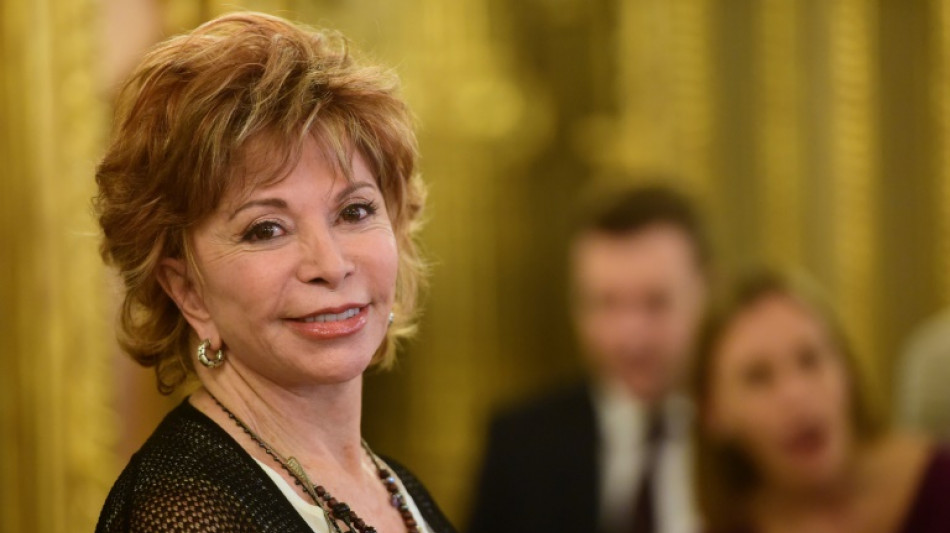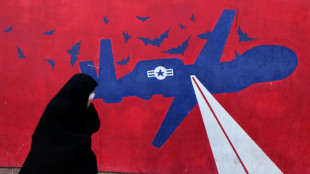
-
 Vonn to provide injury update as Milan-Cortina Olympics near
Vonn to provide injury update as Milan-Cortina Olympics near
-
France summons Musk for 'voluntary interview', raids X offices

-
 Stocks mostly climb as gold recovers
Stocks mostly climb as gold recovers
-
US judge to hear request for 'immediate takedown' of Epstein files

-
 Russia resumes large-scale strikes on Ukraine in glacial temperatures
Russia resumes large-scale strikes on Ukraine in glacial temperatures
-
Fit-again France captain Dupont partners Jalibert against Ireland

-
 French summons Musk for 'voluntary interview' as authorities raid X offices
French summons Musk for 'voluntary interview' as authorities raid X offices
-
IOC chief Coventry calls for focus on sport, not politics

-
 McNeil's partner hits out at 'brutal' football industry after Palace move collapses
McNeil's partner hits out at 'brutal' football industry after Palace move collapses
-
Proud moment as Prendergast brothers picked to start for Ireland

-
 Germany has highest share of older workers in EU
Germany has highest share of older workers in EU
-
Teen swims four hours to save family lost at sea off Australia

-
 Ethiopia denies Trump claim mega-dam was financed by US
Ethiopia denies Trump claim mega-dam was financed by US
-
Norway crown princess's son pleads not guilty to rapes as trial opens

-
 Russia resumes strikes on freezing Ukrainian capital ahead of talks
Russia resumes strikes on freezing Ukrainian capital ahead of talks
-
Malaysian court acquits French man on drug charges

-
 Switch 2 sales boost Nintendo profits, but chip shortage looms
Switch 2 sales boost Nintendo profits, but chip shortage looms
-
China to ban hidden car door handles, setting new safety standards

-
 Switch 2 sales boost Nintendo results but chip shortage looms
Switch 2 sales boost Nintendo results but chip shortage looms
-
From rations to G20's doorstep: Poland savours economic 'miracle'

-
 Russia resumes strikes on freezing Ukrainian capital
Russia resumes strikes on freezing Ukrainian capital
-
'Way too far': Latino Trump voters shocked by Minneapolis crackdown

-
 England and Brook seek redemption at T20 World Cup
England and Brook seek redemption at T20 World Cup
-
Coach Gambhir under pressure as India aim for back-to-back T20 triumphs

-
 'Helmets off': NFL stars open up as Super Bowl circus begins
'Helmets off': NFL stars open up as Super Bowl circus begins
-
Japan coach Jones says 'fair' World Cup schedule helps small teams

-
 Equities and precious metals rebound after Asia-wide rout
Equities and precious metals rebound after Asia-wide rout
-
Do not write Ireland off as a rugby force, says ex-prop Ross

-
 Winter Olympics 2026: AFP guide to Alpine Skiing races
Winter Olympics 2026: AFP guide to Alpine Skiing races
-
Winter Olympics to showcase Italian venues and global tensions

-
 Buoyant England eager to end Franco-Irish grip on Six Nations
Buoyant England eager to end Franco-Irish grip on Six Nations
-
China to ban hidden car door handles in industry shift

-
 Sengun leads Rockets past Pacers, Ball leads Hornets fightback
Sengun leads Rockets past Pacers, Ball leads Hornets fightback
-
Waymo raises $16 bn to fuel global robotaxi expansion

-
 Netflix to livestream BTS comeback concert in K-pop mega event
Netflix to livestream BTS comeback concert in K-pop mega event
-
Rural India powers global AI models

-
 US House to vote Tuesday to end shutdown
US House to vote Tuesday to end shutdown
-
Equities, metals, oil rebound after Asia-wide rout

-
 Bencic, Svitolina make history as mothers inside tennis top 10
Bencic, Svitolina make history as mothers inside tennis top 10
-
Italy's spread-out Olympics face transport challenge

-
 Son of Norway crown princess stands trial for multiple rapes
Son of Norway crown princess stands trial for multiple rapes
-
Side hustle: Part-time refs take charge of Super Bowl

-
 Paying for a selfie: Rome starts charging for Trevi Fountain
Paying for a selfie: Rome starts charging for Trevi Fountain
-
Faced with Trump, Pope Leo opts for indirect diplomacy

-
 NFL chief expects Bad Bunny to unite Super Bowl audience
NFL chief expects Bad Bunny to unite Super Bowl audience
-
Australia's Hazlewood to miss start of T20 World Cup

-
 Bill, Hillary Clinton to testify in US House Epstein probe
Bill, Hillary Clinton to testify in US House Epstein probe
-
Cuba confirms 'communications' with US, but says no negotiations yet

-
 Iran orders talks with US as Trump warns of 'bad things' if no deal reached
Iran orders talks with US as Trump warns of 'bad things' if no deal reached
-
From 'watch his ass' to White House talks for Trump and Petro


Isabel Allende: In Chile, the 'old fogeys' need to go
The "old fogeys" of Chilean politics must go, says Isabel Allende -- a stance that is true to form for the novelist, whose latest book "Violeta" is a sweeping epic depicting the transformation between past and present.
A new generation has taken power in Chile, and Allende, perhaps the most popular Spanish-language writer on the planet, is welcoming the dawning political era with open arms.
"In Chile, the old fogeys of the political and financial world have got to go home -- or to an asylum!" the Chilean author tells AFP during a recent video interview.
Gabriel Boric, a leftist who was elected Chile's youngest-ever president at age 35 last month, is already unsettling markets and turning traditional Latin American politics upside down by unveiling a young, women-majority cabinet.
Allende is cheering him on.
"It is a young generation that is taking power," she says.
She applauds his cabinet choices -- and also notes that this young government will have to implement a new Constitution in Chile.
"And that... is an opportunity for us to ask ourselves what sort of country we want," she says.
The changes make her hopeful, especially as they point towards equality for women and Indigenous people.
"And we must try to ensure that all this is part of the country without damaging the economic system, which has made progress in Chile but is very badly distributed, creating such terrible inequality that people are furious," she says.
- 'Broader vision' -
Change, the journey between the past and the present, has long been a theme of Allende's nearly 30 books, which have been translated into more than 40 languages and sold some 70 million copies.
In her new novel "Violeta," she tells the story of an independent woman who was born during one pandemic and dies during another.
Along the way, she witnesses the many transformations of a South American country that seems very much like Chile.
"The idea came to me after the death of my mother. She died shortly before the (Covid-19) pandemic, and she was born as the Spanish flu was coming to Chile, in 1920," Allende says.
The novel takes place during her mother's lifetime, which she describes as "a period in the 20th century of wars, depressions, dictatorships in Latin America, revolutions.
"I created a protagonist who resembles my mother in many ways, but who is not her and who had a much more interesting life."
The difference, she says, is that "Violeta can support herself, which gives her great freedom. My mother depended first on two husbands, and then on me."
In the novel, Violeta and her family leave the capital and move to the south of the country, where they live alongside people of more humble backgrounds.
It was important for Allende to show those class differences, she says, describing a "caste system" in Latin America "which in some places is quite impenetrable."
"And Chile is a country with many class prejudices, more than other countries, perhaps in part because there was little immigration in its early days.
"So Violeta, if she had remained in her social class, if she had lived the corresponding life, would never have gained a broader vision of the country, and of life."
- Stranger in a familiar land -
That kind of "broader vision" is reflected in Allende's own life also.
The author was born in Lima in 1942 -- but she has been abroad for many years, and now lives near San Francisco in the United States.
She describes a sensation familiar to anyone who has lived far from home for a long time, of being a stranger wherever she goes.
Whenever she returns to Chile, she says, "The first week I am happy, but then I realize that I am a foreigner there, too. It is my destiny.
"In the United States, I speak English with an accent. Anyone who sees me on the street knows that I am a Latina and that I am an immigrant.
"And in Chile, I have lived abroad for 40 years, and the country has changed a lot.
"In my head and in my heart is a country that no longer exists."
- Why stop? -
The journey between the past and the present is also reflected in her writing process, she says.
Some things don't change, such as the date she begins writing.
"I start all my books on January 8, so on the seventh I have to take nerve pills," Allende explains.
"The nerves have never left me, but I've learned that if I show up with discipline before the keyboard each day, something comes out."
She has also become "a little more relaxed," she says -- and she has learned that it is "no good" to have an outline.
"That paralyzes me and I lose all inspiration. I let the story change," she says.
"I enjoy writing so much. People tell me: 'You shouldn't have to write any more, you're getting too old for that.'
"But I love it. Why would I want to stop?"
F.Qawasmeh--SF-PST
